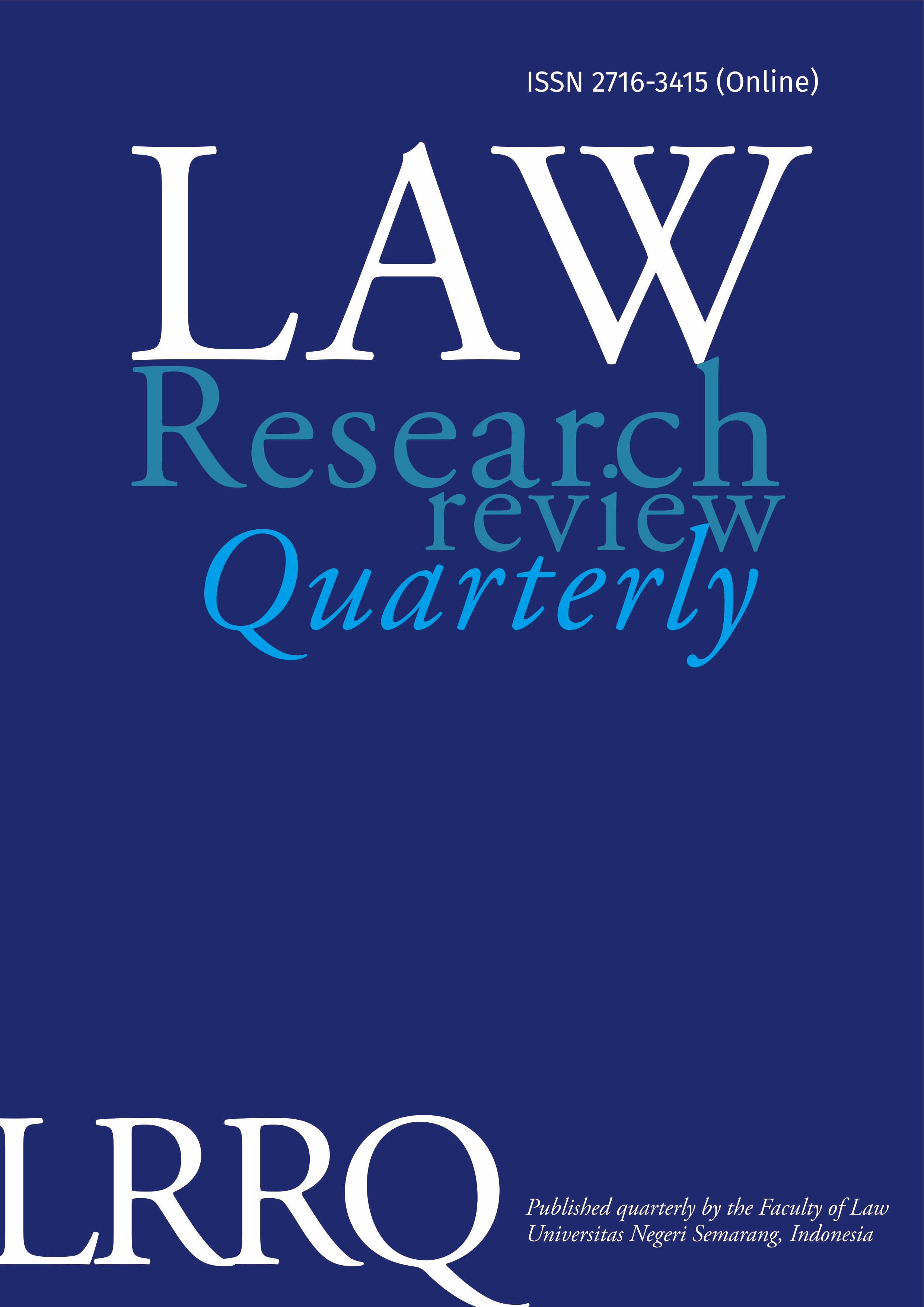Empowerment Model and Fulfillment of Elderly Rights through Elderly Schools (Review of Law Number 13 of 1998)
Main Article Content
Abstract
The empowerment and fulfillment of senior rights model based on Law Number 13 of 1998 in Tegal District and Central Java Province have begun to fulfill the rights of senior citizens through schools, with support from the community, village government, provincial government, and central government, including support from families with senior members, even though it has not yet been fully synchronized and quickly implemented in each region. Socialization continues to be conveyed to the public about the need for attention and respect for senior citizens by all segments of society, even though there are still societal stigmas that consider senior citizens as having many limitations and being unproductive, and therefore not needing special attention from the government.
Article Details

This work is licensed under a Creative Commons Attribution-ShareAlike 4.0 International License.
All writings published in this journal are personal views of the authors and do not represent the views of this journal and the author's affiliated institutions. Author(s) are retain the copyrights of the Article. However, before publishing, it is required to obtain written confirmation from Author(s) in order to ensure the originality (Author Statement of Originality). The statement is to be signed by at least one of the authors who have obtained the assent of the co-author(s) where applicable.This work licensed under a Creative Commons Attribution-ShareAlike 4.0 International (CC BY-SA 4.0)
References
Akbar, M. (2019). Kajian Terhadap Revisi Undang-Undang No.13 Tahun 1998 Tentang Kesejahteraan Sosial Lanjut Usia. Jurnal Mimbar Kesejahteraan Sosial, 2(2).
Efendi, J., & Ibrahim, J. (2018). Metode Penelitian Hukum Normatif dan Empiris. In Kencana (Vol. 2, Issue Hukum).
Hakim, L. N. (2020a). Batasan Usia Dan Kesejahteraan Lansia. Pusat Penelitian Badan Keahlian DPR RI, XII.
Hakim, L. N. (2020b). Pelindungan Lanjut Usia Pada Masa Pandemi Covid-19. Perlindungan Lanjut Usia Pada Masa Pandemi Covid-19, XII.
Hakim, L. N. (2020c). Urgensi Revisi Undang-Undang tentang Kesejahteraan Lanjut Usia. Aspirasi: Jurnal Masalah-Masalah Sosial, 11(1). https://doi.org/10.46807/aspirasi.v11i1.1589
Irwansyah, I. (2020). Penelitian Hukum: Pilihan Metode \& Praktik Penulisan Artikel. Yogyakarta: Mirra Buana Media.
Jarot, D. B. (2021). Indonesia Didominasi Milenial dan Generasi Z. In Katadata.Co.Id.
Kementrian PPN/Bappenas. (2017). Visi Indonesia 2045. Kementrian PPN/Bappenas, 1(September).
Kusnandar, V. B. (2022). Ada 30 Juta Penduduk Lansia di Indonesia pada 2021. Databoks.
Mulyati, M., Rasha, R., & Martiatuti, K. (2018). Pengaruh Dukungan Sosial Keluarga Terhadap Kualitas Hidup Dan Kesejahteraan Lansia. JKKP (Jurnal Kesejahteraan Keluarga Dan Pendidikan), 5(1). https://doi.org/10.21009/jkkp.051.01
Probosiwi, R., & Suryani. (2022). Analisis Risiko Elder Abuse dan Peran Pemerintah dalam Perlindungan Sosial Lansia. Aspirasi: Jurnal Masalah-Masalah Sosial, 13(1).
Styawan, D. A. (2020). Determinan Kepemilikan Jaminan Kesehatan Penduduk Lanjut Usia Di Indonesia. Seminar Nasional Official Statistics, 2019(1). https://doi.org/10.34123/semnasoffstat.v2019i1.36
Sulistiawati, F., Dewi, B., & Septiani, S. (2022). Pemenuhan Gizi Lansia Melalui Produk Olahan Pangan Lokal dan Konseling Gizi. Abdinesia: Jurnal Pengabdian Kepada Masyarakat, 2(2).
Waspiah, W., et.al. (2021). Peningkatan Pemahaman Hak Alimentasi terhadap Kelompok Lanjut Usia Melalui Legal Counseling Approach. Jurnal Pengabdian Hukum Indonesia (Indonesian Journal of Legal Community Engagement) JPHI, 4(1), 112-122.
